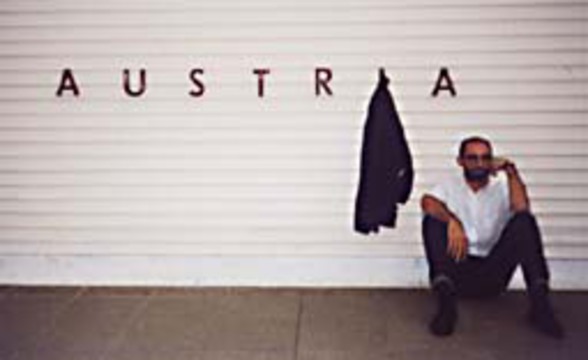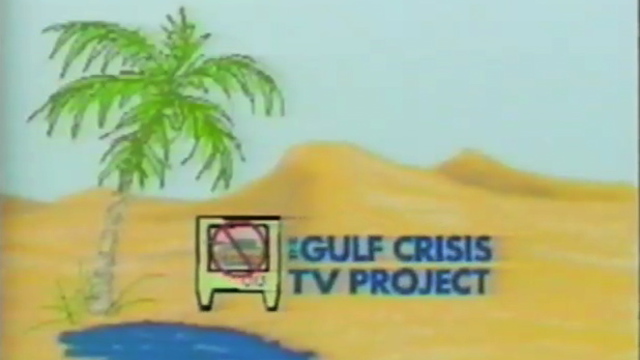Search results for 'political+science'
Clemens Apprich
Theorist, writer, and Research Fellow at the Moving Image Lab as well as coordinator and curator at the Post-Media Lab at Leuphana University in Lüneburg.
ReadMerijn Oudenampsen
Merijn Oudenampsen is an urban sociologist, active member of the Flexmens collective and a freelance researcher. His main research interest is Dutch populism.
ReadOliver Marchart
Since 2006 Oliver Marchart is Professor at the Universtiy of Luzern, 2001-2002 he was Scientific Advisor and Head of the Education Project of documenta 11.
He lectured at different universities (University of Vienna, University
of Innsbruck, Art Academies, Essex Summer School, University of Basel).
Fellowships: Research Fellow at the Centre for Theoretical Studies,
University of Essex (1995); Junior Fellow at the International Research
Center for Cultural Studies in Vienna (1997-1998); Fellow at the
Columbia University Institute at Reid Hall and the École des Hautes
Études en Sciences Sociales, Paris (2005).
Inke Arns
Inke Arns, curator and artistic director of Hartware MedienKunstVerein (www.hmkv.de) in Dortmund, Germany, since 2005. She has worked internationally as an independent curator, writer and theorist specializing in media art, net cultures, and Eastern Europe since 1993. She lived in Paris (1982-86), finished school in West-Berlin in 1988, studied Russian literature, Eastern European studies, political science, and art history in Berlin and Amsterdam (1988-96) and in 2004 obtained her PhD from the Humboldt University in Berlin, with a thesis focusing on a paradigmatic shift in the way artists reflected the historical avant-garde and the notion of utopia in visual and media art projects of the 1980s and 1990s in (ex-)Yugoslavia and Russia.
ReadGeert Lovink
Geert Lovink is a media theorist, net critic and activist.
Occupy and UK Uncut: the evolution of activism
Occupy Sandy gained the attention denied to Occupy Our Homes because it replaced militant Occupy! with "do-it-yourself" Occupy. Feel-good mutual aid displaced attention from the underlying contradiction between public housing and private utilities onto the quick fix of digital media. Occupy Our Homes, on the other hand, confronts the system with its failures ? predatory lending, homelessness, and empty bank-owned houses. The problems it addresses can't be solved by rolling up our sleeves and getting involved; they require political solutions.
ReadDark Markets
Dark Markets is a two day strategic conference that looked into the state of the art of media politics, information technologies, and theories of democracy. A variety of international speakers inquired into strategies of oppositional movements and discussed the role of new media.
ReadMigrants / Media / Metropolis
Migration and media-activists gather with theorists and labour organizers to discuss and share best practices in the fight against precarity and insecure labour conditions. Sharing inspiring examples of social justice unionism and creative campaigning like Justice for Janitors in the U.S. and Cleaners For a Better Future in the Netherlands.
ReadNext 5 Minutes 2
Next 5 Minutes: tactical media was a conference and exhibition that took
place at Amsterdam's Balie and Paradiso and at Rotterdam's
V2_Organisation from January 18th till January 21st 1996. The
conference was officially opened Thursday evening in Rotterdam with a
performance of the Critical Art Ensemble from Chicago about the matter
of media.
A call to the Army of Love and to the Army of Software
October 2011.
The fight opposing financial dictatorship is erupting. The so-called 'financial markets' and their cynical services are destroying the very foundations of social civilization.
Tactical Media, the Second Decade
The tactical media concept originates in post-1989 Europe when political change coincided with a wild phase in thinking about media technologies. It was the decade when both artists and activists started to discover digital technologies on a massive scale. Prizes dropped and expectations rose to incredible heights.
ReadTactical Media After 9-11
It is tempting to portray '9-11' as a turning point. Gore Vidal warns
that, since September 11, the US is in danger of turning into a "seedy
imperial state." Make war, not politics. The new patriotism requires: "Disruption, including obstructing the view or hearing of others, will
not be tolerated." The list of measures to restrict civil liberties,
freedom of speech and privacy, or what?s left of it, doesn?t stop. A
recent conference in Perth concluded that post-September 11 reporting
adds to divisions and stereotypes. "The media's failure to provide more
perspectives to news consumers and ask critical questions is fuelling a
culture of fear and blame around the world, experts say."
The Art of Campaigning
The idea for the Art of Campaigning topic originates from the works of
the McLibel group [www.mcspotlight.org]. Their type of net.campaign
questions previous forms of activism, which was focused on the mass
media and their ability to influence public opinion, by staging direct
action (targeted at known media makers). Big NGO's such as Greenpeace
have built up experiences with this model for decades. The scenarios
they use have not changed much since the seventies. There is the usual
PR material: official reports, books, folders, flyers, magazine and
original video footage, shot on location. Campaigns are being planned
long in advance. The way of working does not differ much from a
campaign to launch a new product. Professionalism has taken over the
task of volunteers. Their role is being reduced to that of a local
support group, doing the actual grass roots work with the population.
A Movement Without Demands?
In this essay, we claim that far from being a strength, the lack of demands reflects the weak ideological core of the movement. We also claim that demands should not be approached tactically but strategically, that is, they should be grounded in a long-term view of the political goals of the movement, a view that is currently lacking. Accordingly, in the second part of this text, we argue that this strategic view should be grounded in a politics of the commons. Before addressing the politics of the commons, however, we dispel three common objections that are raised against demands during general assemblies, meetings, and conversations people have about the Occupy movement.
ReadNext 5 Minutes 3
Amsterdam & Rotterdam, The Netherlands, 12-14 March, 1999
The third Next 5 Minutes, an Amsterdam based conference on tactical communications culture, featuring do-it-yourself media, dissident art and electronic media activists from around the world, took place on the 12th, 13th and 14th of March 1999.
N5M3 archived festival website
ReadNext 5 Minutes 4
Next 5 Minutes is a festival that brings together media, art and politics. Next 5 Minutes revolves around the notion of tactical media, the fusion of art, politics and media. The festival is organised irregularly, when the urgency is felt to bring a new edition of the festival together.
ReadThe ABC of Tactical Media
Tactical Media are what happens when the cheap 'do it yourself' media, made possible by the revolution in consumer electronics and expanded forms of distribution (from public access cable to the internet) are exploited by groups and individuals who feel aggrieved by or excluded from the wider culture. Tactical media do not just report events, as they are never impartial they always participate and it is this that more than anything separates them from mainstream media.


